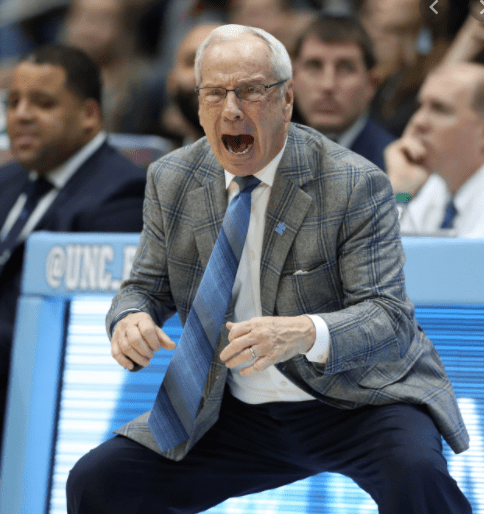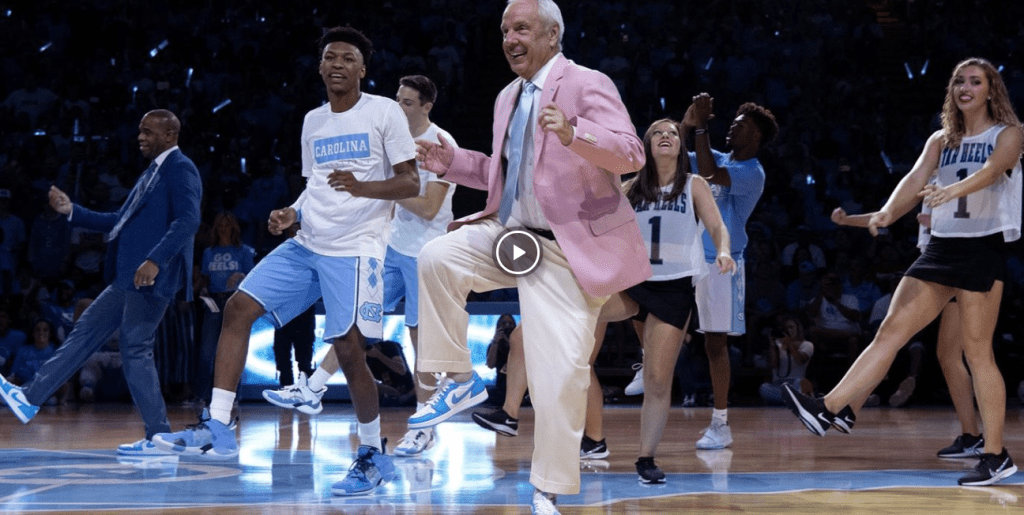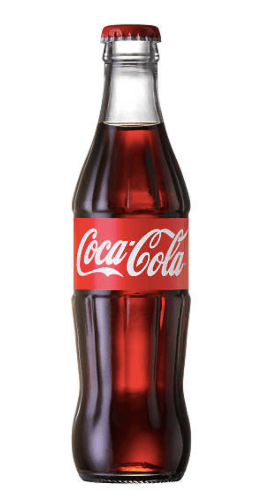
“Ole Roy ain’t that good,” he has said about himself.
Well, the statistics, and there are a lot of them, speak for themselves and they beg to differ. What they say is that this man, this coach, built a record that only a precious few have or will attain over a career in college basketball coaching.
But the numbers don’t tell the story of how they came to be, how Roy came to be the right man for whom the floor of the Dean Smith Center is now named.
For the longest time, way before Roy left Chapel Hill for Kansas, while he was still coaching the Carolina JV squad and studying as an assistant coach under Coach Smith, I loved his story.
Roy grew up the way many did. Hardscrabble. His alcoholic father was tough on his mom until they separated. After that, his mom continued working in the factory and started ironing shirts and pants for 10 cents each after she came home to try and make ends meet. Roy hated that she had to do that, and he never forgot how she faced adversity to raise him and his sister.
Here’s a link to an article written in 1997 when Roy was coaching Kansas. I really hope that you will read it, even if you think you know the story. And, especially if you don’t like Roy, maybe because your team lost to him…often. I think you’ll get a sense of the goodness in the man even if you dislike him for his consistent winning ways.
I just finished reading it and I’ve gotta be honest, even though I know the story, I just wiped tears from my face.
That early life set his future in so many ways, from valuing hard work, loyalty to people, sacrificing for others, revering the women in his life, loyalty, humility, honoring his dream, and, of course, the joy of opening a bottle (or can) of Coca Cola which, at one time, cost what his mother made ironing someone else’s pants.
A little personal aside, Roy was a senior at UNC when I was a freshman. We never met. We just shared the same campus for a year and then he graduated. He was just one of those gym rats; a good, but not great, basketball player who came to know very early in his life what he wanted to do. Coach. For him, basketball was his pathway to coaching. And his fierce desire to coach was a reflection of his relationship with his high school basketball coach, Buddy Baldwin. Through Buddy’s example, Roy learned how much a coach could matter in the lives of their players. For him, Buddy became the father he didn’t have in his life. To him, his coach meant the world. Roy wanted that kind of connection with players. It was never the money. In those days, coaching wasn’t the best way to put cash in your pocket. It was a thankless, low paying job. It was always the players and the game that drew them together to build lifelong connections through a shared experience that required hard work, facing adversity, always striving to improve for the good of the team. To play better together. To know a plan and to execute that plan, together, and make it become a winning plan.
After he graduated from Carolina, Roy set about putting his plan into action. He landed the head coaching job for basketball and golf in Black Mountain, NC, near his hometown of Asheville. Those players on his first team carry in their hearts the same feelings for Coach Roy as he does for them to this day, like the feelings that Roy carries for Buddy.
Then, Coach Smith called him about an assistant coaching job. He told Roy that he didn’t have a salaried position available yet, but, if Roy really want it, Coach Smith offered him some ways to earn money for his growing family. That’s how Roy began selling annual team calendars and driving the video tape of Coach Smith’s weekly coaching show around to the TV stations in North Carolina that carried it.
And the part of that story that I loved the most was that he arranged his route so that he always ended with the Asheville station. Once he completed his business at WLOS, he would swing by his mom’s and they would share a Coca Cola at the kitchen table.
So, Roy earned his way, in a sense, paying for his time with Coach Smith in his own form of ironing shirts and pants to make ends meet. Selling the calendars and driving the coach’s show tape from town to town helped put food on the Williams family table while granting his further education as a coach, going to school through team practices and time on the bench during games and learning from the dean of the game. Finally, Coach Smith was able to actually pay him for his work as an assistant coach. By then, Roy had turned his calendar sales into a real moneymaker…because that is just what he did with any project. He turned it into a winner.
Fast forward. Roy’s retirement press conference made the end all so real. We experienced it in our home with feelings worn on our sleeves watching him fight back tears addressing his passion, compassion and joyful adoration of everything Carolina. He leaned in heavily on his mistakes and failures along the way in these last two very difficult years. He never blamed the difficulty of those two years on the players or on COVID19. The failures were always on him. And, like golfers addressing the last round or so of competition, if only that ball would have dropped, or, I didn’t tell the guys to call a timeout…or, I called a time out that didn’t work out either. He put a lot of that second guessing on display all to legitimize his decision. He also revealed the anguish he felt in doing so.
It was rough. Watching him beat himself up in order to explain why now, and not later, he was retiring.
I guess it needed explaining. I guess he is the type of person who, even ranked at the tip top of success in his court, felt compelled to reflect on where he was now with a deeply honest critique like it was an open wound.
I remember when Coach Smith said that he knew it was time for him to retire when he didn’t have the fire to return for the next season. He knew that he would not be giving the team what it deserved from him. And, Coach Smith couldn’t do that to his players, be less than what they needed or expected.
This was Roy’s way of saying the same, of following his mentor’s example, but with more self admonishment. Whatever the reason, he felt it time for him, for the program and for the players to hang up his shoes. He felt that he was “no longer the right person for the job.”
And speaking of hanging your shoes up, all through this year Roy wore an amazing array of old Air Jordans…all Carolina Blue of course, during games. The broadcasters caught on and featured the new “old” pair he was sporting for that game.

Looking back, was that a signal?
Anyway. Yes. I bleed Carolina Blue. And for all of his mistakes, Roy Williams did what a protege’ should do; he took what he learned from Coach Baldwin, Coach Smith and Coach Guthridge, built on that to reboot the program at Kansas, until he received Dean’s call. “Roy,” Dean said, “We need you. Carolina basketball needs you.” All he did was come back to Chapel Hill and save Carolina basketball. He righted the ship and spent 18 years piloting that ship, making all of us, the fans, the media and the nation, expecting Carolina to play in the Final Four every year. We didn’t always make it, of course, but we came to expect nothing less than success. Nothing less than measuring up to and going beyond the legacy started by Dean Smith.
It’s true. Ole Roy was not Coach Smith. But he became everything that the team needed from him and more.
For folks like Roy in jobs like his, the hardest part is letting go. Letting go of the strings you had both pulling at you and those you pulled to get what you needed to accomplish the goals in front of you.
Letting go the daily embrace of people who you put in place to help you and the team succeed, people you’re devoted to and engaged in their personal and professional success.
Letting go the love of that work which binds you together. Letting go of winning together…and even letting go of losing together.
That was what was bubbling through Ole Roy’s final press conference as Head Coach of The University of North Carolina Tar Heels. That’s what he was expressing through watery eyes and slow, thoughtful words often challenged by his own emotion.
One thing he will never let go…his love of everything Carolina, from the place to the people, to his time there and his time not there…and most importantly, he will never ever let go of his commitment to his players, his coaches or his staff.
Nor will we, the Tar Heel Nation, let go of Ole Roy.
He made us too proud, too happy for so long that we expected nothing less than the best.
We owe him such a debt of gratitude. And a Coke anytime he wants one. Because, like his favorite drink, Ole Roy “is the real thing.”


Steve:
Although I am a blue Duke fan, I read your story of Coach Roy Williams with great interest and it certain was impressive! What a strong person he has been to overcome all sort of difficulties! I would call him a great coach who certainly deserves lots of respect and admiration.
Thanks for this well-written story which needs to be told.
Dottie Osborn
That is quite a lot to ask of a Duke Blue Devil. I’m impressed by your capacity to “let go” of the the rivalry for a minute.
If only the people that run this country would step back, have a coke and think about their players. Nice read Steve.